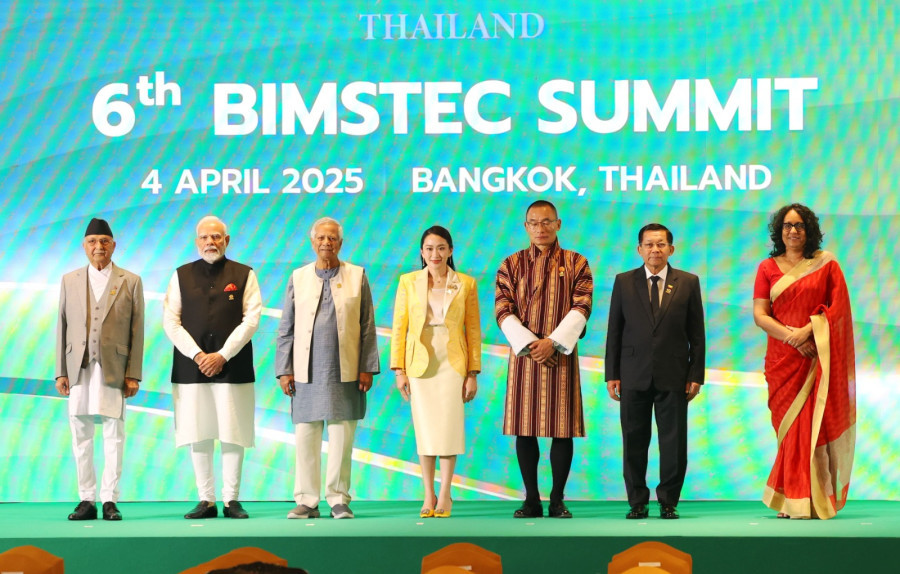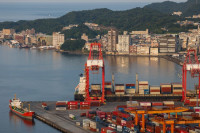World
Prime Minister Oli at Bimstec stresses regional connectivity
Says, a visa-on-arrival policy within the bloc would be a game changer in boosting bonds.
Post Report
Prime Minister KP Sharma Oli has stressed regional connectivity among the Bimstec member states as an important pillar for prosperity.
“Connectivity of markets as well as minds, connectivity of infrastructures as well as ideas, connectivity of culture as well as cyber is yet another backbone of growth,” he said while addressing the Bimstec Summit that kicked off in Bangkok, Thailand, on Friday.
He emphasised the implementation of Bimstec Master Plan for Transport Connectivity and Bimstec Agreement on Maritime Transport Cooperation in a time-bound manner that would bring about significant progress in this regard.
Oli drew the attention of the regional leaders towards the fact that intra-regional trade in Bimstec remains a mere 5 percent–far lower than South East Asian countries, European Union, or North American countries.
“Our region is among the least integrated globally, barring natural interconnections among our societies, economies and nations,” Prime Minister Oli said. “This must change.”
Building an integrated Bay of Bengal region is a must to unlock the potential and capitalise on the complementarities of the region, he said.
He was for recognising that not all economies in this region are equal and extending preferential support to member states with special needs to enable them to share common prosperity.
Oli emphasised strengthening people-to-people connectivity.
“A visa-on-arrival policy within Bimstec would be a game-changer in easing travel and fostering deeper regional bonds,” he said. “We must prioritise digital integration to facilitate e-commerce, cross-border payments, and e-governance.”
He also drew the attention of the heads of the states and governments of the region towards the fact that climate change has posed an existential threat to entire humanity.
“For Nepal, the stakes are even higher. Our high Himalayas are perennial water towers and cooling stations of Asia,” he explained. “While these high mountains contribute as global heat sinks, they have also suffered a disproportionate assault despite our negligible emissions.”
The impact is confined not only in mountains but also in the downstream lowlands and coastal areas, he added.
“To highlight the plight of mountains and linkages between mountains and oceans, Nepal is organising the first edition of Sagarmatha Sambad this May and I look forward to seeing many of you there,” he said, extending an invitation to the leaders to the forum.
Stating that sea levels are rising, and tropical storms in coastal regions are becoming more intense, he said the Bimstec faces a wide range of extreme weather events—glacial floods, tropical cyclones, thunderstorms, heat waves, and droughts.
“These challenges are not distant threats; they are damaging our everyday life,” Oli said.




 13.12°C Kathmandu
13.12°C Kathmandu














